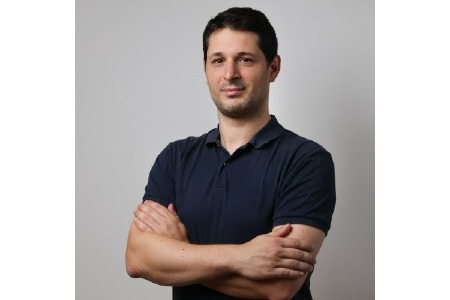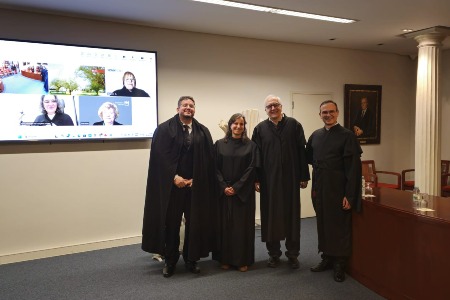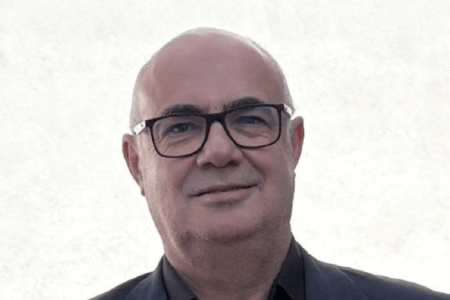By Álvaro Paralta, SICC, FEUP
“Lectures, workshops and problem-solving sessions. These were some of the activities at the latest edition of Semana de Informática (SINF), organised by the Informatics Group of the Student Association of the Faculty of Engineering of the University of Porto (NIAEFEUP). The initiative took place between 21 and 24 October at the Faculty of Engineering and was attended by more than 20 companies.
Over the four days, the companies interacted freely with FEUP students from their respective stands, distributed along the main corridor of the faculty. But that’s not all. In addition to the job fair itself, the programme also included workshops, lectures, problem-solving sessions and a networking dinner between the companies with the highest level of sponsorship at the event and the invited students.
According to Diogo Fernandes, president of NIAEFEUP, the overall assessment of the event is “very positive”. “We got the impression that the companies, in general, were very satisfied. And the feedback we received, both from trainers and speakers, was that the students participated actively in the activities – they were always very interested and engaged,” he comments.
“For us, organising a SINF means having the opportunity to bring new topics to students, as well as providing them with another opportunity to interact with companies. This is clearly something in which FEUP excels, in general – the ease with which we are able to reach the business community. There are always many job fairs and activities with companies that enhance this relationship. And having an activity of this type dedicated solely to Computer Engineering is very important,” reflects Diogo Fernandes.
Among the topics covered at SINF were Artificial Intelligence, Digital Transformation, Cybersecurity, Quantum Computing, Career Development and Entrepreneurship. “We have noticed that this has been an area that has been emerging more and more – not only because of growing demand from students, but also because of what we have seen at the events we have participated in,” explains Diogo.
There was also room for new features, such as problem-solving sessions and a networking dinner. “The contact that a company has with a student through a job fair is usually relatively quick and does not allow for much discussion or in-depth conversation. With this in mind, we prepared these activities, which we believe allowed for more detailed contact between the company and the student,” shares the president of NIAEFEUP. “With the problem-solving sessions, we gave companies a chance to closely observe the students’ ability to solve challenges. On the one hand, we managed to give students a more relaxed moment; on the other hand, companies were able to see their skills in a very practical way – not only in terms of solving the challenge itself, but also their teamwork, communication and leadership skills,” explains Diogo Fernandes.
The networking dinner was also developed in a more personalised way. The companies with the highest level of sponsorship were able to directly invite students who had positively impressed them during the interaction at their respective stands. This allowed the relationship between the employer and the potential candidate to be deepened, enabling mutual interests and opportunities to be explored in a more informal way and with more time.
NIAEFEUP organised this edition of SINF in the aftermath of the National Meeting of Computer Science Students, which took place in April at FEUP. “This was an added challenge because it was a very large event to which we were all very dedicated. This meant that we ended up starting SINF a little later,” shares the student. “It was challenging, but we already had a well-defined plan. We ended up gaining a lot of experience from the meeting, and that helped us.”
With their eyes already set on the future, NIAEFEUP’s goals include organising more training sessions with companies throughout the year. “We want to be more involved in the student training process, meeting their needs. And that’s what we’re working on,” concludes Diogo.
More information here.”








